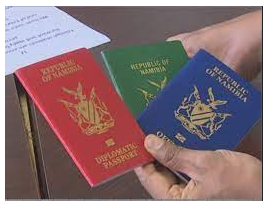Starting July 1, 2025, foreign nationals—including Nigerians and other Africans—will no longer be able to appeal visa rejections through German embassies or consulates.
Instead, applicants must either submit a new visa application with updated documentation or pursue legal action in court, marking a significant change in Germany’s visa policy.
The Federal Foreign Office announced the abolition of the remonstration procedure, an informal appeal process that allowed rejected visa applicants to request a reassessment of their case.
Although widely used, the process was never mandated by law but offered voluntarily.
The release also included revised entry processes for non-EU nationals who want to stay, work, or study in Germany for more than 90 days.
The statement reads, “The Federal Foreign Office has decided to abolish the appeal procedure against visa rejections worldwide as of July 1, 2025. This eliminates a legal remedy in the visa process that was not provided for by law but was previously granted voluntarily.”
“Adequate legal protection will continue to be guaranteed, as the legal process provided for by law will not be shortened by the abolition of the remonstration procedure,” they stated.
Submit new visa application or file legal challenge
Applicants will instead be updated on the grounds for rejection and given two choices: either submit a new visa application with updated evidence or file a legal challenge in court.
Additionally, before entering Germany for a stay longer than ninety days or for work, citizens of nations outside the EU, EEA, and Switzerland need to obtain a visa, the German government clarified.
Countries with visa-free entry
But US, UK, Japan, New Zealand, South Korea, Australia, Canada, and Japan nationals can enter without a visa and apply for a residency permit while they’re there.
“Citizens of Australia, Israel, Japan, Canada, New Zealand, the Republic of Korea, the United Kingdom of Great Britain and Northern Ireland, and the United States of America can also obtain the required residence permit after entering the country.”
“The following applies to all other citizens: A visa for a longer-term stay must generally be applied for at the responsible foreign diplomatic mission before entering the country,” they stated.
Applicants not from the EU, EEA, or Switzerland on this list must apply through the German embassy or consulate in their home country using the conventional visa application process.
Three months to process certain visa categories
Specific visa categories, such as study, family reunification, and self-employment, that need immigration authorities’ permission may take up to three months or longer to process.
The notification further stated, “Approval from the responsible immigration authority in Germany is generally required. The immigration authority of the place where the foreign national will take up residence is responsible. “
“If the approval of the immigration authority is required for the visa process, the procedure can take up to three months, occasionally longer, as other authorities (such as the Federal Employment Agency) are often involved in addition to the immigration authority. The diplomatic mission may only issue the requested visa once the approval of the immigration authority has been obtained,” they stated.
However, because they normally don’t need outside approval, employment-related visas are handled more swiftly.
The ability to visit other European nations without requiring additional visas is granted to holders of a national D visa for Germany, which allows them to travel inside the Schengen Area for up to 90 days during a 180-day period.
















